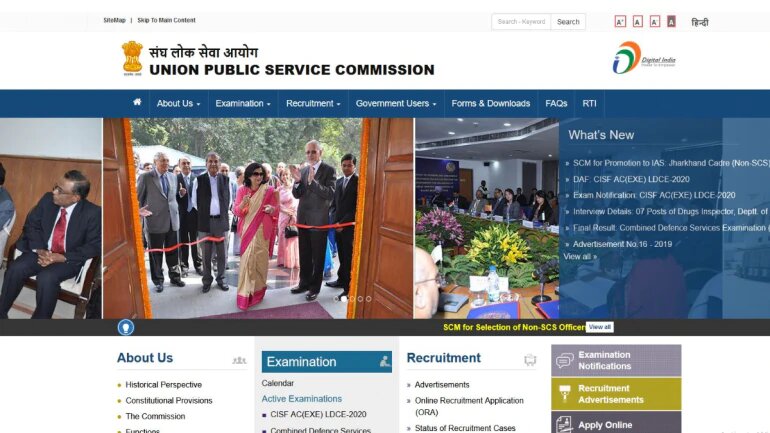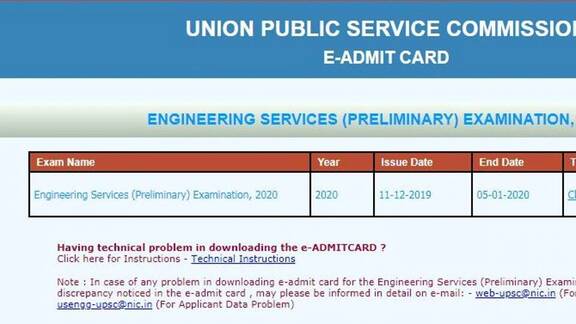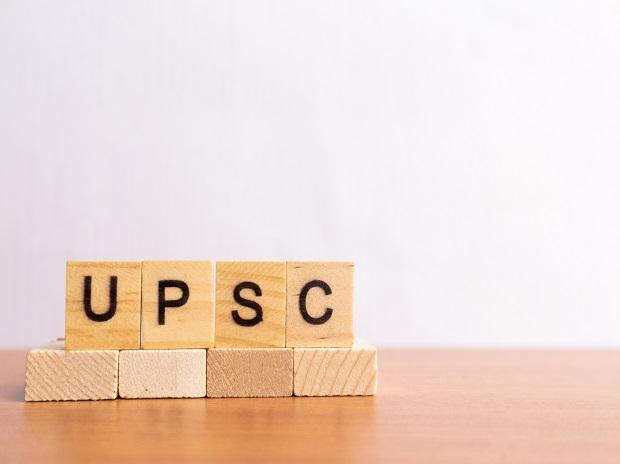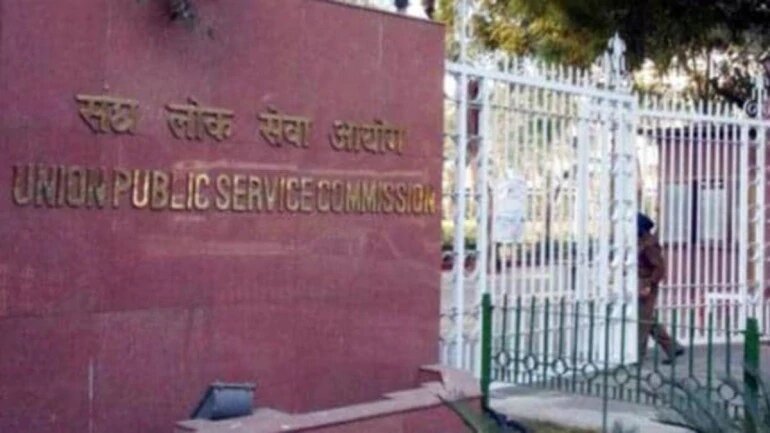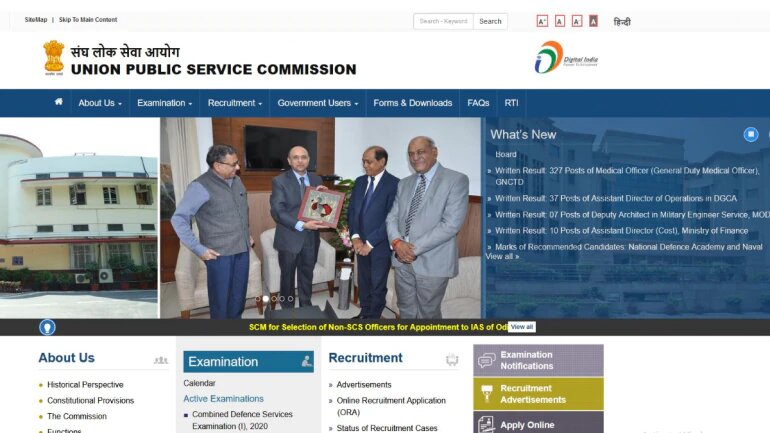Source – indiatoday.in
UPSC Engineering Service Exam (ESE) 2019: The Union Public Service Commission (UPSC) has released the admit cards of the UPSC Engineering Services (Preliminary) Examination, 2020. All the candidates can download the UPSC ESE Prelims Examination 2020 admit cards from the official website of the commission, the link for which is upsc.gov.in . The UPSC Engineering Services Prelims Exam 2020 is scheduled to be held on January 5, 2020.
UPSC ESE Admit Card 2020: Here’s how to download
- Log on to the official website of UPSC, upsc.gov.in
- On the homepage, click on the link ‘Engineering Services (Preliminary) Examination, 2020- E Admit Card’
- On the new page, read ‘IMPORTANT INSTRUCTIONS TO THE CANDIDATE’ carefully
- Enter your Registration Id/Roll number and date of birth
- Click on ‘Submit’
- UPSC Engineering Services Prelims Exam 2020 admit card will be displayed on the screen
- Download and take print out of the same for future use.
Direct link: https://upsconline.nic.in/eadmitcard/admitcard_ese_2020/admit_card.php#hhh1
UPSC ESE 2020: Important instructions for candidates
- Check the e-Admit Card carefully and bring discrepancies, if any, to the notice of UPSC immediately.
- Mention your Name, Roll Number, Registration ID and Name & Year of the Examination in all the correspondence with UPSC
- Bring this e-Admit card (print out), along with the (original) Photo Identity Card, whose number is mentioned in the e-Admit Card , in each session to secure admission to Examination Hall. E-Admit Card must be preserved till the declaration of the final results as its production before Service Selection Board is necessary
- You are responsible for safe custody of the e-Admit Card and in the event of any other person using this e-Admit Card, the onus lies on you to prove that you have not used the service of any impersonator
- Candidates should note that any omission / mistake / discrepancy in encoding / filling in details in the OMR answer sheet, especially with regard to Roll Number and Test Booklet Series Code, will render the answer sheet liable for rejection
- Enter the Examination Hall at least 30 minutes before the scheduled commencement of the Examination. Entry to the Examination Hall closes 10 minutes prior to the scheduled commencement of the examination in each Session
- If you appear at a centre / sub-centre other than the one indicated by the Commission in your e-Admit Card, your answer scripts will not be evaluated and your candidature is liable to be cancelled
- 8. Read the “Special Instructions for candidates admitted to the examination” given in “Rules for the Examination” available in Examination Notice and “Poster” containing instructions displayed outside the Examination Hall
- Your candidature to the examination is provisional
- Mobile Phones, Calculators, IT Gadgets and any other Communication device such as Bluetooth etc. are not allowed inside the premises where the examination is being conducted. Any Infringements of these instructions shall entail disciplinary action including ban from future examinations
- There will be penalty (Negative Marking) for wrong answers marked by a candidate in the objective type Question Papers
- Answers other than those made by Black Ball Point Pen would not be evaluated
- Candidates are advised not to bring any valuables/costly items and bags to the Examination Halls, as safe keeping of the same can not be assured. The Commission will not be responsible for any loss in this regard
- Candidates who do not have clear photographs on the e-admit card will have to bring a photo identity proof viz. Adhar Card, Driving Licence, Passport,Voter I Card etc. and two passport size photographs one for each session for appearing in the examination with an undertaking
- Orthopaedically /Visually Impaired candidates, who have opted for their own scribe, may note that their own scribe will be allowed for the exam only with a separate e-Admit Card for such scribe. The e-Admit Cards for the own scribes will be issued separately.
UPSC Engineering Services Exam 2020: Vacancy details
Name of the post:
- Civil Engineering
- Mechanical Engineering
- Electrical Engineering
- Electronics and Telecommunication Engineering
UPSC Engineering Services Exam 2020: Selection procedure
Stage-I: Engineering Services (Preliminary/Stage-I) Examination (Objective Type Papers) for the selection of candidates for the Stage-II: Engineering Services (Main/Stage-II) Examination
Stage-II: Engineering Services (Main/Stage-II) Examination (Conventional Type Papers) and
Stage-III: Personality Test
About UPSC:
The Union Public Service Commission (UPSC) is India’s premier central recruiting agency which is responsible for appointments to and examinations for all India services and group A & group B of central services.
